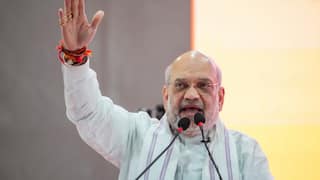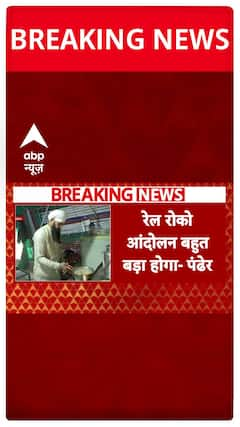Thyroid Awareness Month: Role Of Iodine In Thyroid Function
Iodine is a trace mineral that the thyroid uses to produce thyroid hormones, which are crucial for metabolism, growth, and development.

The thyroid, a small butterfly-shaped gland located in the neck, plays a pivotal role in regulating various bodily functions. One essential element for its proper function is iodine. Iodine is a trace mineral that the thyroid uses to produce thyroid hormones, which are crucial for metabolism, growth, and development. While iodine is vital for thyroid health, an imbalance can lead to thyroid dysfunction.
Iodine And Thyroid Hormone Production:
Talking about this, Dr. Dheeraj Kapoor, who is the Chief of Endocrinology at Artemis Hospitals, Gurugram said, "The thyroid gland synthesises two main hormones, thyroxine (T4) and triiodothyronine (T3), both of which contain iodine which, in turn, is obtained through the diet- primarily from iodised salt, seafood, dairy products, and certain vegetables. The thyroid extracts iodine from the bloodstream to incorporate it into the structure of these hormones."
Thyroid Dysfunction Due To Iodine Deficiency:
Iodine deficiency is a leading cause of thyroid dysfunction worldwide. When the body lacks sufficient iodine, the thyroid is unable to produce an adequate amount of thyroid hormones. This condition, known as hypothyroidism, can lead to a range of symptoms, including fatigue, weight gain, cold intolerance, and cognitive impairment. In severe cases, iodine deficiency during pregnancy can result in cretinism, a condition characterised by intellectual disabilities and stunted physical growth in the offspring.
Iodine Excess And Thyroid Dysfunction:
While iodine deficiency poses a significant threat, excessive iodine intake can also disrupt thyroid function. The thyroid has a delicate balance, and too much iodine can lead to hyperthyroidism, where the gland produces an excess of thyroid hormones. This can cause symptoms such as weight loss, rapid heartbeat, anxiety, and tremors.
Iodine-Induced Thyroid Disorders:
In this regard, Dr. Dheeraj Kapoor said, "Certain populations are more vulnerable to iodine-induced thyroid disorders. For instance, individuals with pre-existing thyroid conditions, such as autoimmune thyroiditis, may be more susceptible to the effects of excess iodine. Additionally, some medications and supplements contain iodine, contributing to the risk of iodine-induced thyroid dysfunction."
The Importance Of Iodine Monitoring:
Given the critical role of iodine in thyroid function, monitoring iodine levels is essential. Healthcare professionals can assess iodine status through blood and urine tests. Understanding the iodine levels in a population can guide public health interventions, such as iodine supplementation programs or dietary recommendations.
In this regard, Dr. Vinodh Kumar S, who is an MBBS, MD (Internal Medicine), and a Consultant Physician and Diabetologist, at Connect & Heal said, "The recommended dietary allowance (RDA) for adults is 1.5mg per day but during pregnancy this requirement increases to 2.5mg for pregnant females and even increases furthermore to 2.9 mg during breastfeeding. Most individuals are considered safe with a daily intake of up to 1.5 mg. Excessive iodine can result from the overconsumption of iodized salt, drinking water, iodine-rich milk, specific seaweeds, and dietary supplements containing iodine. Ingesting more than 1.5 milligrams per day may pose risks, potentially leading to acute and/or chronic toxicity"
Ayurveda And Hypothyroidism:
Ayurveda is an ancient medical practice which is effective in various metabolic, lifestyle-related and auto-immune conditions. of this age-old Indian medical system is to maintain total health by balancing the body's energies, or doshas.
Talking about this, Dr Manoj Kutteri, who is the Medical Director and CEO at Atmantan Wellness Centre said, "According to Ayurveda, Hypothyroidism is frequently linked to an imbalance in the "Kapha" dosha, which stands for the earth and water elements. Thyroid gland disorders can impact the throat chakra, which is thought to be a component of the Kapha dosha. Ayurvedic methods of treating Hypothyroidism usually focus on dietary adjustments, herbal remedies, and lifestyle changes."
The following Ayurveda concepts could be taken into account for treating Hypothyroidism as suggested by Dr. Kutteri:
- Diet and Nutrition: Ayurveda places a strong emphasis on eating a healthy and balanced diet. Incorporate a range of fresh produce, whole grains, lean meats, and fruits into your meals. Warm, prepared foods are an essential part of a Hypothyroid-management diet because they aid in digestion and metabolism. Adding natural spices such as ginger, turmeric, and black pepper helps improve the fire of the digestive system. Food items high in iodine, such as seaweed and iodized salt, may be advantageous because iodine is essential for thyroid function. Maintaining balance can be achieved by minimizing the amount of cold or raw food consumed and placing an emphasis on a range of vegetables, healthy grains, and lean proteins. Maintaining optimum hydration with warm liquids—like herbal teas—can promote general wellbeing.
- Spices and Herbs: Ayurveda suggests a range of herbs and spices to help those who are Hypothyroid. The adaptogenic herb Ashwagandha, which we like to call Nature’s Multitasker, is thought to enhance thyroid function and also assist in balancing stress hormones. The blend of three fruits (haritaki, bibhitaki, and amalaki), known as triphala aids in the process of digestion and elimination, while also enhancing general health. Guggul, which has anti-inflammatory qualities, is frequently used to promote thyroid function and support metabolism. Turmeric's curcumin concentration may also have anti-inflammatory properties that may improve thyroid function. Spices like ginger, cumin, and black pepper can help balance the Kapha dosha, linked to an underactive thyroid, by promoting better digestion and metabolism.
- Yoga and Mindfulness: In the Ayurvedic approach to treating thyroid disorders, Yoga is frequently advised as a supportive therapy for those with Hypothyroidism. The thyroid gland can be stimulated and balanced by certain Yoga practices. The Sarvangasana (Shoulder Stand) and Matsyasana (Fish Pose) directly affect the throat area, thereby supporting thyroid function. By increasing blood flow to the thyroid, these postures aid in controlling thyroid function. The practice of Nadishodhana pranayama (alternate nostril breathing) and Ujjayi Pranayama (Victorious Breath) can increase body metabolism, heat and vigour, which is beneficial for those with Hypothyroidism. Regular Yoga practice, using these poses and breathing techniques, improves general health by addressing the energy and physical elements of thyroid function.
[Disclaimer: The information provided in the article, including treatment suggestions shared by doctors, is intended for general informational purposes only. It is not a substitute for professional medical advice, diagnosis, or treatment. Always seek the advice of your physician or other qualified healthcare provider with any questions you may have regarding a medical condition.]
Check out below Health Tools-
Calculate Your Body Mass Index ( BMI )
Trending News
Top Headlines






































